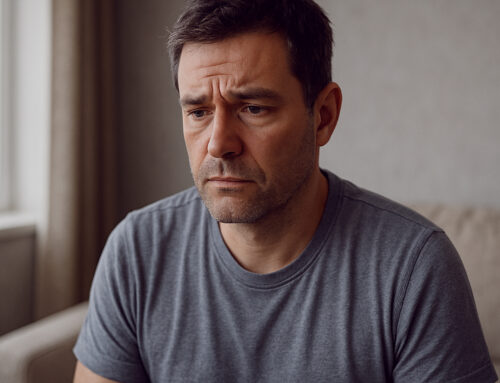Signs and Symptoms of Anxiety Disorders
Anxiety disorders affect millions globally, yet they often go unnoticed or untreated. With effective treatments available, no one should have to endure the debilitating effects of anxiety in silence. Let’s dive into the key signs, symptoms, and options for managing this common mental health condition.
What Are Anxiety Disorders?
Anxiety disorders go beyond everyday stress or occasional nervousness. They are intense and persistent, causing fear, worry, and physical tension that disrupt daily life. From generalized anxiety disorder to social anxiety and panic disorders, each type has unique traits but shares a common thread: they can be deeply distressing if left untreated.
Signs and Symptoms of Anxiety Disorders
Physical Symptoms
Anxiety doesn’t just exist in the mind—it can affect your entire body. Common physical symptoms include:
- Rapid heartbeat or heart palpitations.
- Sweating, trembling, or feeling light-headed.
- Nausea or abdominal distress.
- Sleep disturbances, such as trouble falling or staying asleep.
Mental and Emotional Symptoms
Mentally, anxiety often manifests as:
- Excessive worry or fear that’s difficult to control.
- Feelings of dread or a sense of impending doom.
- Difficulty concentrating or making decisions.
- Persistent rumination—replaying events or imagining worst-case scenarios.
Behavioral and Social Symptoms
Anxiety can lead to avoidance behaviors that interfere with relationships and responsibilities. For example:
- Avoiding social interactions for fear of judgment.
- Refusing to face situations that trigger panic or fear.
- Struggling to maintain personal or professional commitments.
Causes of Anxiety Disorders
The roots of anxiety are complex and multifaceted:
- Biological Factors: Genetics and chemical imbalances in the brain play a significant role.
- Psychological and Environmental Triggers: Trauma, abuse, and chronic stress can all contribute.
- Physical Health: Chronic illnesses like heart disease or thyroid issues may exacerbate anxiety symptoms.
Complications of Untreated Anxiety
Leaving anxiety untreated can have serious consequences. Beyond the mental toll, it can increase risks of:
- Physical health issues like heart disease or ulcers.
- Co-occurring disorders such as depression or substance abuse.
- Social isolation and difficulty maintaining relationships.
Anxiety Treatment Options
Therapeutic Interventions
Cognitive-behavioral therapy (CBT) is a gold standard in anxiety treatment. It helps individuals challenge unhelpful thought patterns and gradually face their fears. Exposure therapy, a specialized form of CBT, encourages safe confrontation of anxiety triggers.
Medications
Selective serotonin reuptake inhibitors (SSRIs) are often prescribed to manage anxiety symptoms. However, benzodiazepines, while effective short-term, are generally discouraged due to dependency risks.
Self-Care Practices
Small daily habits can make a significant difference:
- Mindfulness meditation and relaxation techniques.
- Regular physical activity to release built-up tension.
- Sticking to consistent sleep and meal schedules.
Holistic Treatment at Triony Behavioral Health
At Triony Behavioral Health, we take a holistic approach to treating anxiety disorders. Our comprehensive care includes evidence-based therapeutic interventions, guidance on developing sustainable self-care practices, and access to psychiatrists for medication management when needed. We also prioritize community support, recognizing the role of relationships and shared experiences in recovery. This integrated approach ensures each patient receives personalized, well-rounded care that addresses their mental, physical, and emotional needs.
Preventing and Managing Anxiety
Prevention begins with awareness. Community programs, school-based initiatives, and parental education can teach effective coping strategies. For adults, regular exercise, stress management, and seeking help early can prevent symptoms from worsening.
When to Seek Help
If anxiety begins to interfere with your work, relationships, or overall well-being, it’s time to consult a professional. Early intervention can make all the difference in your journey to recovery.
Anxiety disorders are common but manageable with the right support and treatment. From therapeutic approaches to self-care, there are many paths to healing. Don’t let anxiety dictate your life—reach out for help and take the first step toward reclaiming control.
Contact Triony Behavioral Health today at 1-888-689-1432 to get started on your path to wellness.
Schedule consultation
Building a Foundation of Trust and Support
"In the midst of chaos, there is also opportunity." At the core of our services lies a deep commitment to creating a safe, supportive environment. We believe that a strong support system is crucial for healing and growth. Our team of compassionate professionals is dedicated to walking alongside you, offering guidance and understanding at every step of your journey.





